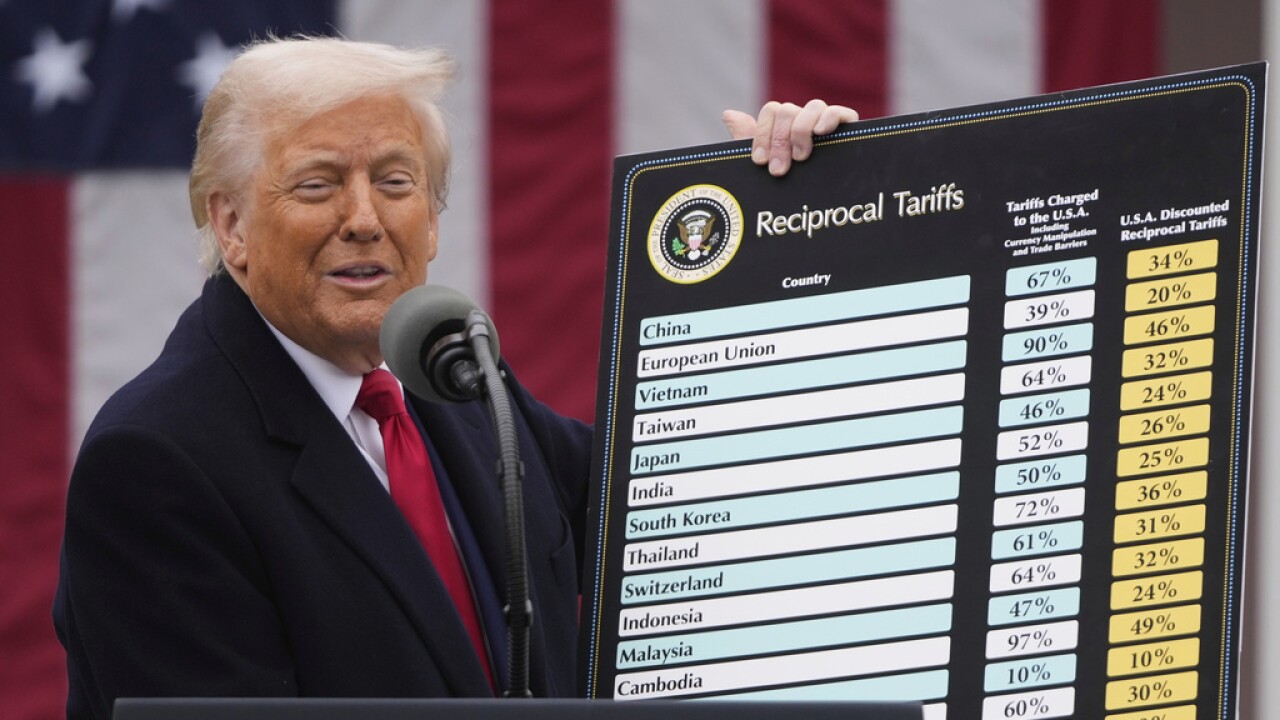After months of delays and negotiations, President Donald Trump's tariffs on imported goods from 70 different countries went into effect on Thursday.
A 10% minimum tariff on imports from all countries is now in place, with higher rates applicable to goods from some nations. Additionally, there is a 50% import tax on copper.
The new tariffs have raised the effective tariff rate paid by U.S. consumers to the highest level since 1934, according to the Yale Budget Lab. The effective tariff rate is now 18.3%, up from 16.6% prior to the implementation of the new tariffs.
At the start of the year, the effective tariff rate was just 2.4%, the Yale Budget Lab reported.
When President Trump first announced reciprocal tariffs in April, the effective tariff rate was projected to be around 28%. However, President Trump ultimately chose to negotiate with other countries, leading him to ease some of the tariffs he initially proposed.
RELATED STORY | 'I’ll have to raise my prices:' Business owners say new tariffs will result in price hikes for customers
The Yale Budget Lab indicates that the tariffs will have a modest impact on food prices, particularly on rice, fruits, and vegetables. In contrast, the tariffs are expected to significantly affect items such as apparel, footwear, and electronics.
China remains the top exporter of goods to the U.S., followed by Mexico, Canada, Japan, and Germany. Notably, China's tariff rate remains at 55%.
Many imports from Canada and Mexico will not be subject to tariffs as long as they comply with the 2020 United States-Mexico-Canada Agreement (USMCA). The Royal Bank of Canada estimates that over 90% of goods exported from Canada to the U.S. meet USMCA guidelines.
Non-compliant goods from Mexico and Canada will incur a 35% tax.
A new 15% tariff on imports from Japan also took effect on Thursday. As Germany is a member of the European Union, President Trump imposed a 15% import tax on EU goods as well.
Given that many companies pass the cost of tariffs onto consumers, the Budget Lab anticipates that these tariffs will cost the typical U.S. household an additional $2,400 per year.





